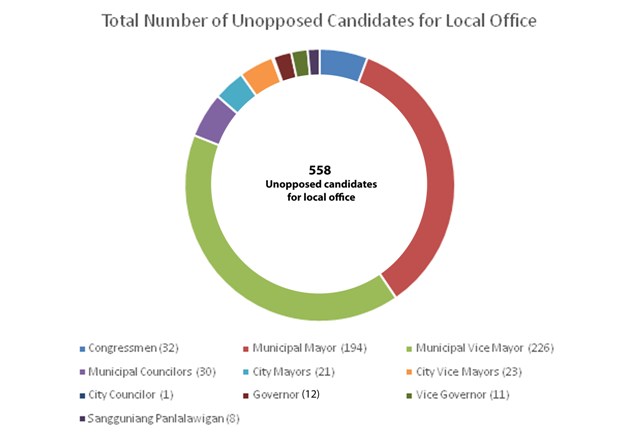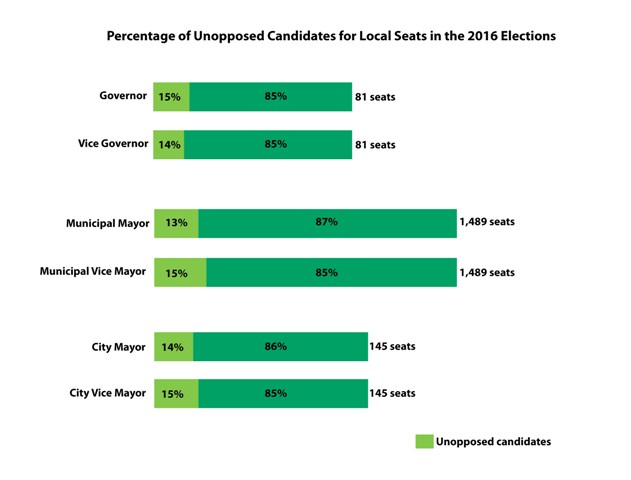Denying Voters the Right to Choose
A GREAT majority of the positions at stake in the May 9 elections this year are in local government.They exceed by the thousands the 26 national posts of 24 seats for senators and one seat each for vice president and president.
The numbers alone demonstrate the importance of local government units (LGU) in ensuring the welfare of each and every barangay, city, or province in the country, as mandated by the Local Government Code of the Philippines (Republic Act 7160).
Citing data from the Commission on Elections (Comelec), The Philippine Star reported that a total of 558 candidates are running for local posts unopposed. Of that number, 12 are running for governor unopposed; 11 for vice governor; 21 for city mayor; 23 for city vice mayor; 194 for municipal mayor and 226 for municipal vice mayor.
Elections are at the heart of democracy with citizens delegating their sovereign powers. Candidates running unopposed deny the voter the right and responsibility to choose.
Figure 1. Number of Unopposed Candidates for Local Office
The powers of local officials are far too vast to be merely handed to unopposed candidates—the only requirement for an unopposed candidate to assume the post he’s aspiring for being his gettingat least one vote.
The governor and vice governor, and the mayor and vice mayor, occupy the highest seats of power in local governments. They are at the helm of power in governance in their respective areas and thus play a huge role in guaranteeing the development and welfare of their constituencies.
Figure 2. Percentage of Unopposed Candidates for Local Seats in the 2016 Elections
The vice governor and vice mayor preside over the provincial and city councils which are charged with legislative power, while the governor and mayor, who have veto powers, are the administrative authorities in their respective jurisdictions. Given the mandates of these local officials, the electorate has to have a wide enough field when choosing them. The increasing numbers of unopposed candidates makes this impossible in many localities.
—With the help of Professor Ronald U. Mendoza, Ph.D of the Ateneo School of Government


Leave a Reply